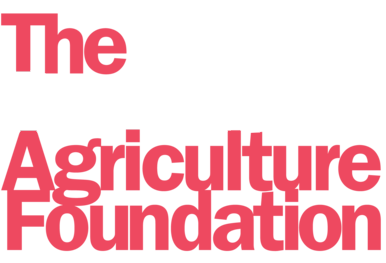Fit for Harvest: Tips for Managing Harvest Stress
August 18, 2020
By Lesley Kelly, Farmer and Co-Founder of the Do More Agriculture Foundation
Harvest is a stressful period. Combine that with poor weather, market conditions and balancing the needs of family, staff, and the farm can have a negative and long-lasting impact on farmers and their health. It’s during these stressful and busy times of the year that we are most likely to ignore the most valuable asset of the farm – ourselves.
The physical and mental stress of farming can take a toll on a farmer’s health. Ignoring these signs of stress can lead to fatigue, depression, anxiety and other mental health illnesses, an increase in the risk of accidental injuries, poor decision-making and more.
The most common signs of stress during harvest are:
Headaches
Frustration
Irritability and short tempered
Impatience
Forgetfulness
Fatigue
Withdrawing from others
Overeating/neglecting diet
Difficulty sleeping
How we take care of our health during harvest will be very different from how we take care of ourselves during other times of the year. It is still very important to continue to take care of yourself during stressful and busy times. Doing small things throughout harvest can have an immense impact on your overall health and help to reduce and manage stress.
I asked farmers on social media what they have done that have helped them manage and alleviate stress during harvest. Here are some of their tips and advice:
Taking breaks are important to help your body and mind recover and recharge. “Don’t get overtired if possible but that doesn’t always work. Afternoon naps for 15 minutes really help me. Eat well and don’t dwell on small mistakes because it can cause you to make bigger ones sometimes. Set manageable goals for the day.” @KowalchukFarms
“There are a few things that help us. Guaranteed Sundays off. Suppers in the field at harvest time. Extra semi so we can send my dad home off the combine earlier and just fill trucks. We try to have one extra person to be a floater and take care of the little things. At least 30 to 45 minutes of downtime when I get home in the evening, even if it’s at 2 a.m. We have a well-thought out bin plan of what grain goes where and we don’t hesitate to hire custom trucks to full elevator contracts to take the pressure off.” @RonKrahn
Having fun can be a morale booster and help maintain a positive mindset. “We always make sure we have something fun planned and some quality time as soon as the busy time is finished. Once we know it’s in the calendar, it’s something to look forward to.” @Peterhynes15
“Have to keep things light. Lots of joking around and having fun. Also, take time for one sit down meal where you all get together. Make it a good meal where it’s something to look forward to each day. These two things go a long way.” @DougSnowbanks
Stress relief like breathing and calming exercises can help in the moment when stress is high. “Taking it day by day. Taking a few moments to breathe, and focus on something else. Even if it’s just 5 minutes.” @farmgirlfran
A supportive team and network around you can help get the work done, create a positive atmosphere and culture and listen during hard times. “Do not be afraid to remove, under-performing or toxic people. It’s amazing how quickly morale of everyone can spiral down or up based on everyone’s contributions and attitude.” @rgstone1
“Having good relationships with neighbours and help each other when things go wrong is invaluable.” @SpudSlingsby
“Focus on what you are good at and hire and delegate the stuff you aren’t. Getting surrounded by folks with motivation and problem-solving skills has been my number one de-stressor.” @MaizeingPete
There are many factors that are outside of our control in farming. Accepting stressors outside of our control and effectively managing stressors within can help reduce stress. “Adopt the mindset that it is a marathon and there will be obstacles, setbacks, and difficulties.” @MarkPGuy
Here’s a few tips for meal preparing: “Making meals ahead, buying easy frozen food, and meal planning have helped us immensely. Avoiding the ‘what’ should we eat today/tonight conversation is a huge for me at harvest.” @VHsweetpotatoes
Taking care of your physical health is helpful as well during harvest. “Maintain a steady intake of water and food, go easy on the caffeine, use a pocket size note pad to record and unload mental clutter onto paper, stretch your muscles to start the day and during, and listen to programming that provides positive energy.” @PTimeFarmer16
After harvest, allow yourself to recover and recharge which may include a short getaway or a day of rest and relaxation.
Whether it’s during harvest or any other time, seek help when you need it. When stress is overwhelming or if you or someone in your family or farm team are going through a hard time, reach out to a friend, loved one, or professional help. Do More Ag is continually adding to the list of resources.
The Do More Agriculture Foundation is not intended to be a substitute for professional medical advice, diagnosis, or treatment. If you are in crisis, please visit your local emergency department or call 911 immediately.
